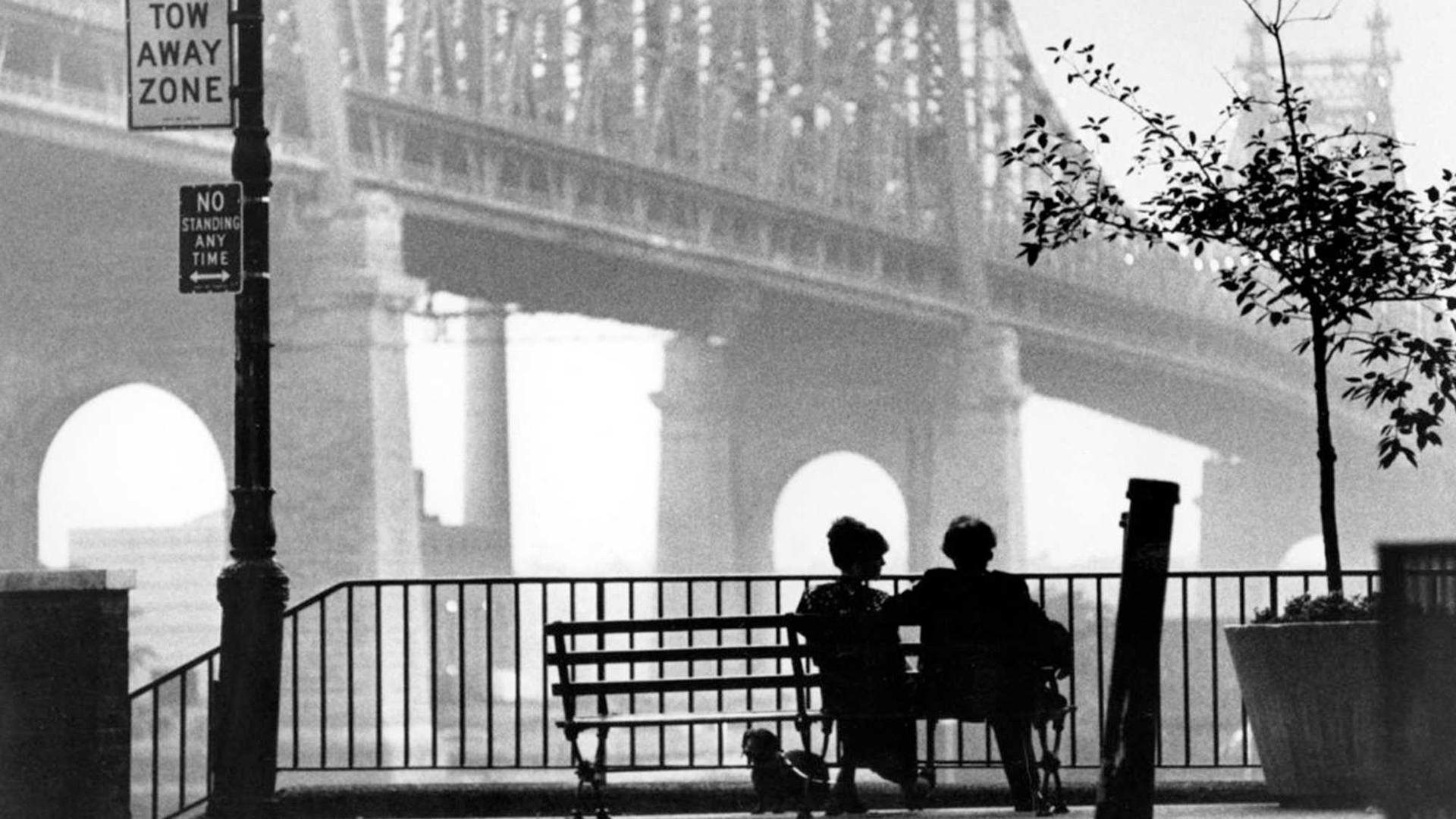
The moving image
A masterclass in cinema


I will go anywhere for a movie, any kind of movie. At home, I have almost a cinema screen; near where I live, there are forty movie-houses to choose from.
There are some directors who only make arthouse movies; that is their whole life; like John Cassavetes.
The Killing of a Chinese Bookie
dir. John Cassavetes [1976]
Cassavetes comes up very close to the actors with the camera; sometimes you don’t even know what the camera is looking at, it goes with the story; it’s a cinematic approach which is typical of arthouse. The nightclub scenes in this film are extremely touching. The mobsters are cold and heartless—different from, for example, The Godfather. It’s like Karel Reisz’s The Gambler or Toback’s Fingers.
Klaus Kinski is amazing in Werner Herzog’s Aguirre, the Wrath of God. But the budget was huge, so I would not classify this as arthouse. I love Tarkovsky. Stalker; and Solaris.
France is called the home of arthouse but I have no French arthouse movies among my favourites. They do not deserve to be considered as highly as they are.
The impact of the Nouvelle Vague (New Wave) on the directors of the New Hollywood is unquestionable. But it was not good for French cinema. Screenwriters who had worked for directors like Renoir or Carné suddenly had no work, because movies were being made differently. And some of them were great artists. Yes, the Nouvelle Vague was important, but if you look at the individual movies, they are not such masterpieces. À Bout de Souffle was made in 1960. At the time it was new and the actors were free and the camera was free. But the movie has dated: that’s obvious.
Jean-Luc Godard’s Le Mépris is an exception. I like it. The tone is typical of Nouvelle Vague—you are in an incredibly beautiful house in an incredibly beautiful place with an incredibly beautiful woman and you are speaking about incredibly deep things.
Arthouse movies are not so different from some blockbusters: if you look at Sam Raimi’s Spider-Man (2002) or Christopher Nolan’s Batman series, the movie concentrates first on the relationship between the characters— not the special effects.
The Lion with the White Beard
dir. Andrei Khrzhanovsky [1995]
It’s hard to find this Russian animation but it is out there (on YouTube). It is the story of a lion who is too old to stay in the circus. It’s an homage to the world of Federico Fellini. The screenwriter, Tonino Guerra, was Fellini’s screenwriter, and he worked with Antonioni and Tarkovsky. The music is by Astor Piazzolla and Nino Rota. This movie is completely overwhelming.
Wonderstruck
dir. Todd Haynes [2017]
Wonderstruck tells the story of two children, one in the 1970s, the other in the 1920s. Both are struggling in life. But they keep moving forward. They overcome. This movie is really about why you are looking at movies.
You are looking because you are asking yourself, where are we going with this story?
Take Pixar, and Cars. Do you know where you are going with Cars? Will Lightning McQueen win? You don’t know. My son is eight years old and a big fan, and while watching Cars 3 he was saying, ‘Oh, he will win!’ I was keen to think that, but I know that it’s Pixar and there will be something unexpected. Even with Ratatouille, you don’t know where it will go. That’s the way I watch a movie: I try not to see what will be at the end, just to follow it as it happens.
What you have in Pixar in terms of technology, you have in Studio Ghibli in poetry.
I have been trapped in a few French movies but will not name them.
Cosmopolis
dir. David Cronenberg [2012]
Cronenberg is a great director. He made Dead Ringers; and Eastern Promises, which is a great, great gangster movie. So how could he make Cosmopolis? It’s a movie about the future, but I would say it’s a movie about nothing. It’s full of pretentious speeches.
In France, the critics—the ‘mac-mahoniens’—hate Scorsese. They say his movies are show-off. I don’t agree.
Goodfellas
dir. Martin Scorsese [1990]
Goodfellas is a great movie. And yet. There is no psychology—it might be a French thing but in movies, like in books, we like to have some minimum of psychology. And the women are weak—I mean in terms of writing. And sometimes the effects are there just for the sake of it. Yet this movie, which is not perfect, is the one I could look at every day.
Titanic is the blockbuster of the blockbusters. It’s not corny at all.
Titanic
dir. James Cameron [1997]
Leonardo DiCaprio is really great; the villain is very good. There is so much happening in addition to the love story. The action, which is coming and which comes quickly, is brilliant. The sinking of the ship is extremely realistic. You feel it as though you were there. All this money spent on the movie, it’s for what? It’s to make you believe it.
The movie shows that death is not the end of everything: how you live afterwards counts; and that’s why it’s a beautiful story.
Tropical Malady
dir. Apichatpong Weerasethakul [2004]
I don’t easily watch movies with magic; but I glimpsed the cover of Cahiers du Cinéma and said to myself, watch this movie! It is a Thai movie (Sud pralad) and was at Cannes. It’s a touching romance between a soldier and a country boy, but that’s not all. There is a folk tale with a shaman and the tiger, and you follow the tiger in the jungle. This movie (its images) made a deep impact, even though I did not understand everything. It’s the same feeling you have when you watch The Big Sleep: you cannot understand the story; but you like it! You don’t care that you don’t understand it.
I think immediately of classic directors like Lubitsch and Howard Hawks and films like His Girl Friday. But I prefer ones with some melancholia. That’s why I love Woody Allen.
Manhattan
dir. Woody Allen [1979]
Woody Allen plays the main character; he meets girls; he walks in the gardens; he talks about things he is discovering; and in the end he falls in love or he thinks he falls in love but not, and that is what is sad, because he is ruining his life, he is making a mistake.
I could say Mizoguchi. His film Ugetsu Monogatari is classic in the deepest meaning—like Murnau’s Sunrise. It’s set in mediaeval Japan and is about what you lose if you have too much ambition.
But I am going to choose a Western.
Rio Bravo
dir. Howard Hawks [1959]
You have two friends; one (Dean Martin) is becoming an alcoholic and the sheriff (John Wayne) is helping him get back on his feet. It’s about redemption. And justice. When you are weak, if you have justice you can overcome the ones who are stronger. That’s the core of the movie, and it’s the core of all classic Westerns. Of course, you need courage. There are only four of them, standing against almost an army, but they don’t care. The scene where they are walking in the street together (to face the bad guys) is one of the best cinematic scenes ever.
It’s obvious. The answer is Netflix. If Netflix were doing only rubbish, we would not speak about it. But Netflix won the Lion d’Or at Venice, with Cuarón’s Roma. Where will you see the next Scorsese movie? On Netflix! The Coen brothers do what they want, always—and where can you see The Ballad of Buster Scruggs? On Netflix! Everything on your screen is changing—because of Netflix.
Netflix was built on series. In the 1980s these were rubbish; but that all changed with The Sopranos. And Tony Soprano, this uncool gangster, was looking at nothing but classic movies.
Great directors
Jacques Audiard
JC Chandor
Zhangke Jia
Hirokazu Koreeda
Steve McQueen
Paolo Sorrentino
Andrey Zvyagintsev
Great movies
We own the night (2007)
Bullhead (2011)
Starred up (2013)
Foxcatcher (2014)
Saul Fia (Son of Saul) (2015)
The Square (2017)
Dogman (2018)
© Norton Rose Fulbright LLP 2025